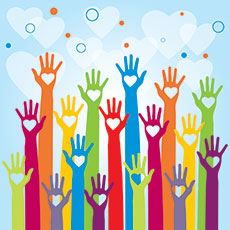 Over the past 20 months, we have all been bombarded with information about COVID-19. From professional journals to Facebook, it has been nearly impossible to stay away from data for more than a few minutes. Every conversation with family and friends, every news report, every work-related policy, every travel plan, and every wedding invitation and dinner plan have had at least a few minutes of discussion about COVID-19. Truth and lies have comingled in ways that I had not seen before in my life. Nor had I ever thought carefully about politics as another determinant of health. [American Public Health Association, January 2022 by José Ramón Fernández-Peña, MD, MPA]
Over the past 20 months, we have all been bombarded with information about COVID-19. From professional journals to Facebook, it has been nearly impossible to stay away from data for more than a few minutes. Every conversation with family and friends, every news report, every work-related policy, every travel plan, and every wedding invitation and dinner plan have had at least a few minutes of discussion about COVID-19. Truth and lies have comingled in ways that I had not seen before in my life. Nor had I ever thought carefully about politics as another determinant of health. [American Public Health Association, January 2022 by José Ramón Fernández-Peña, MD, MPA]
But, as president of the American Public Health Association (APHA), I’ve had the opportunity over the past year to hear from people around the country about their stories and about how they are coping with this pandemic. I have heard from colleagues who remained determined to do the right thing for the health of their communities, even when their employment was in jeopardy and they and their families received threats. I have heard from some friends and relatives who think that this is all a big hoax and that I should really read this or that thing their friend posted on Twitter. I have been moved to tears by the dedication of so many, and I have been—and remain—incensed at the intentional disinformation campaigns.
I’ve read about the impact on the economy, on the health sector, on educational achievement, and on the food chain, to name a few. But the report that struck me the most was one that stated that, on average, every person who dies from COVID-19 leaves behind nine mourners. This means there are almost 42 million people in the world mourning the loss of a loved one, 6 million of those in the United States.
I try to grasp the impact of this pandemic on the emotional well-being of the world I live in. Besides everything else, how do we come back from this pain? How do we heal from these losses and attempt to return to some semblance of normalcy in our everyday lives? How do we heal the social wounds that have been inflicted on this nation by a false narrative that has only fostered a longer agony? I am no thanatologist but can offer some thoughts about what I’m doing in this regard.
First, I acknowledge the losses and build healing spaces for individuals and communities to mourn in their own ways.
Second, I redouble my efforts to remove the structural inequities that foster the uneven distribution of the burden of disease.
Third, I recommit to redressing the pervasive racist practices that continue to keep historically marginalized communities out of the rooms where decisions are made.
Fourth, I look back and examine how we have managed the situation, what we did right, and what we did wrong.
Fifth, I continue to advocate adequate funding for the public health infrastructure and emergency preparedness systems.
Sixth, I amplify my work in the realm of civic engagement and voter registration to ensure that every voice is heard.
Seventh, I work to strengthen our ability to respond quickly and assertively to disinformation campaigns.
Eighth, I seek to partner with key players outside our field to better understand the issues and to help us extend our reach.
Ninth, I renew my efforts to develop a health workforce that mirrors the population it serves.
Tenth, I don’t forget to allow myself to laugh, to weep, and to take a break.
It’s been an honor to be the “virtual president” of the APHA.
Download full article here>
###
